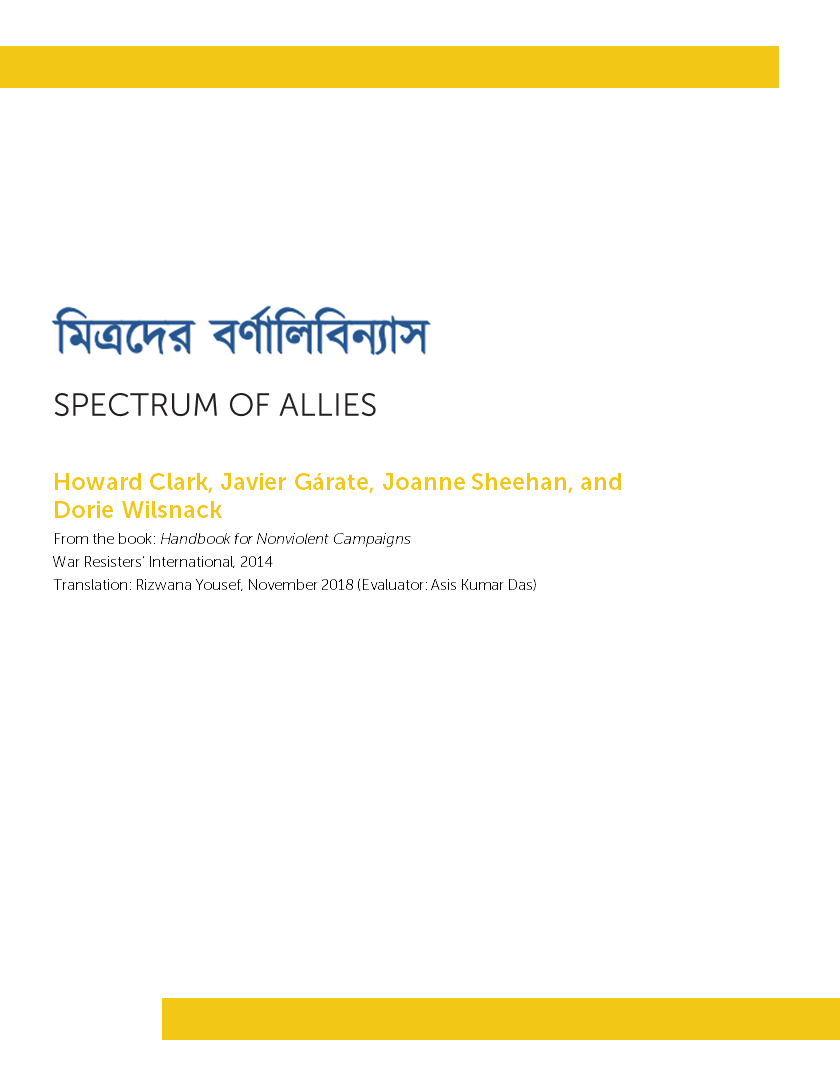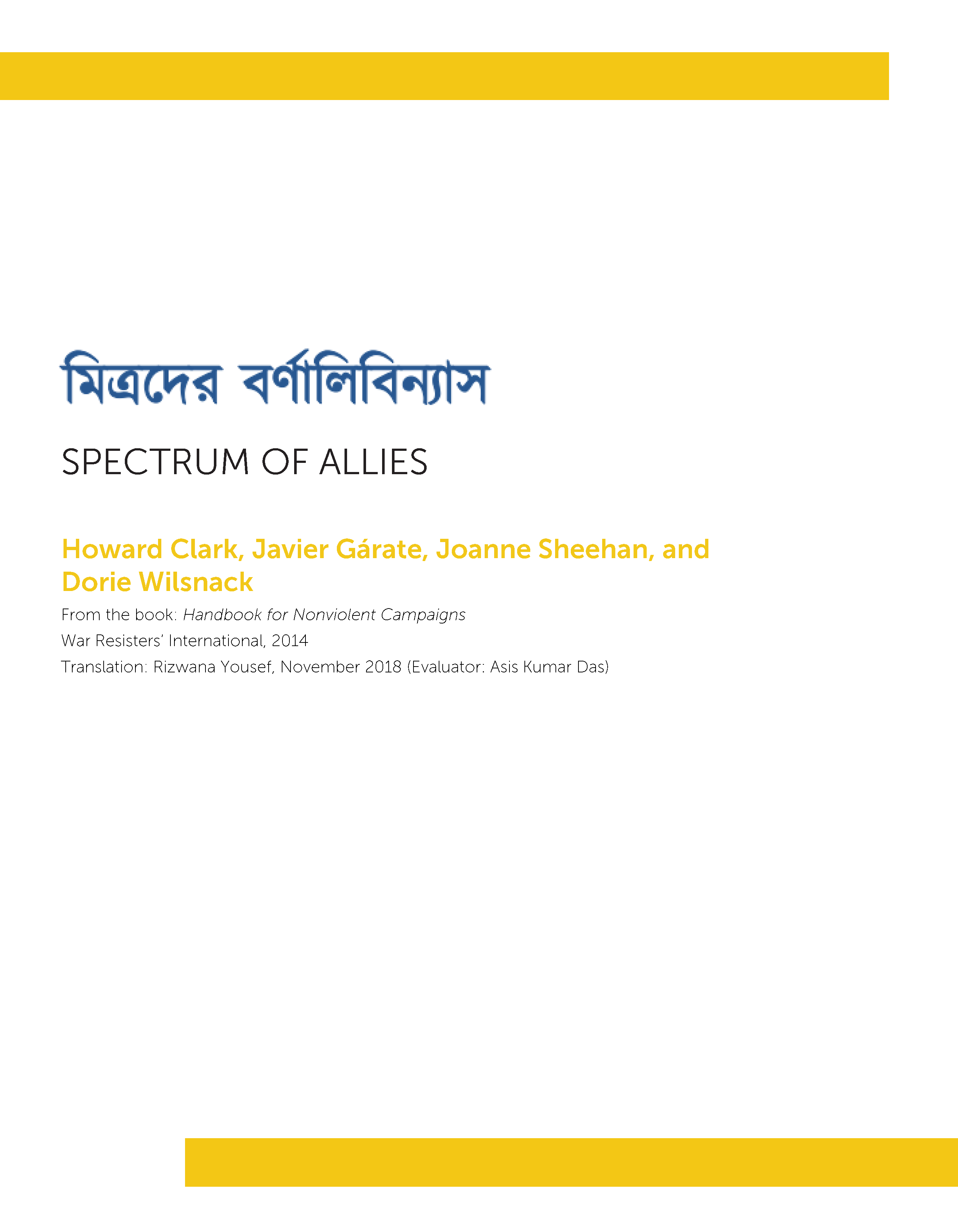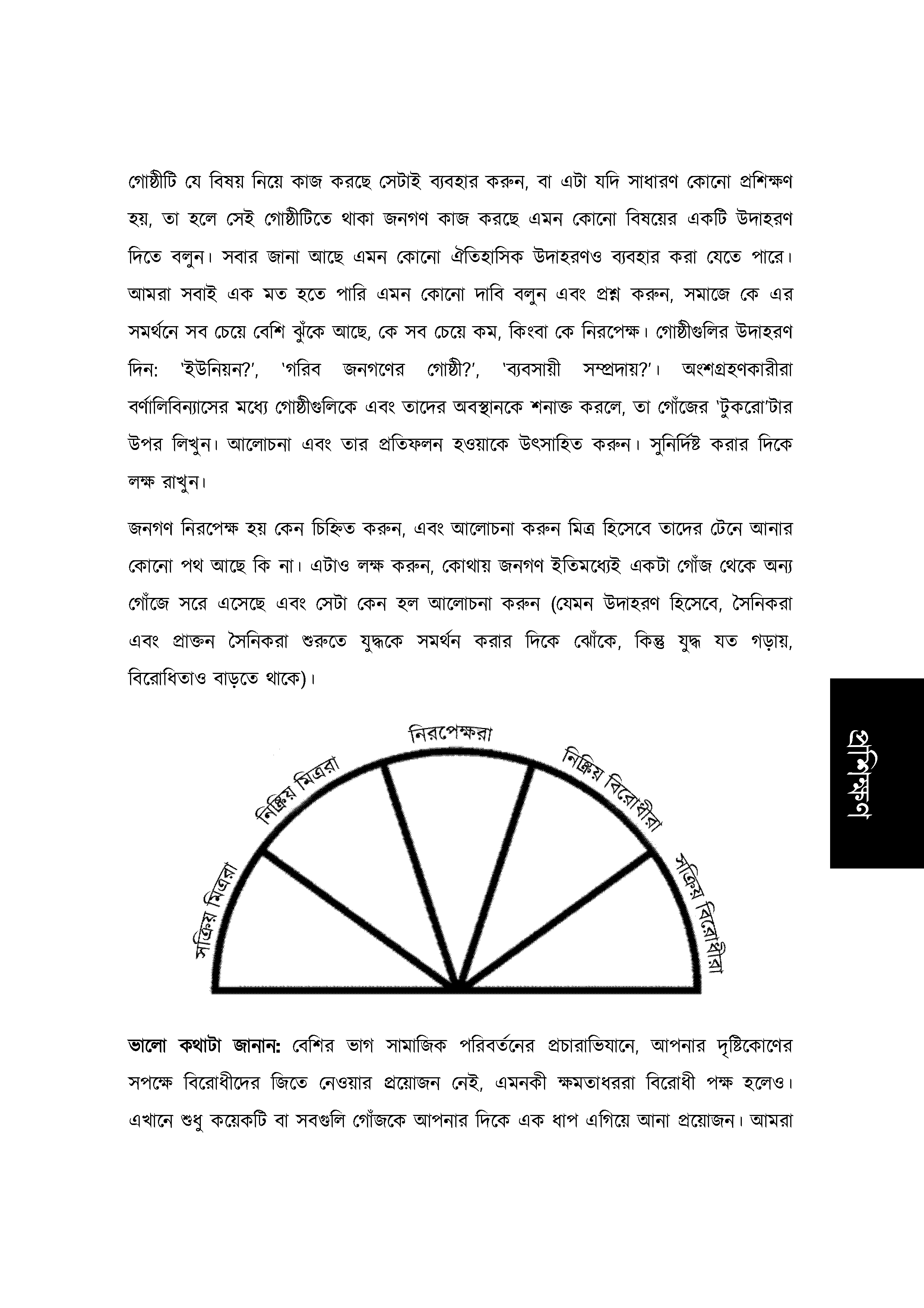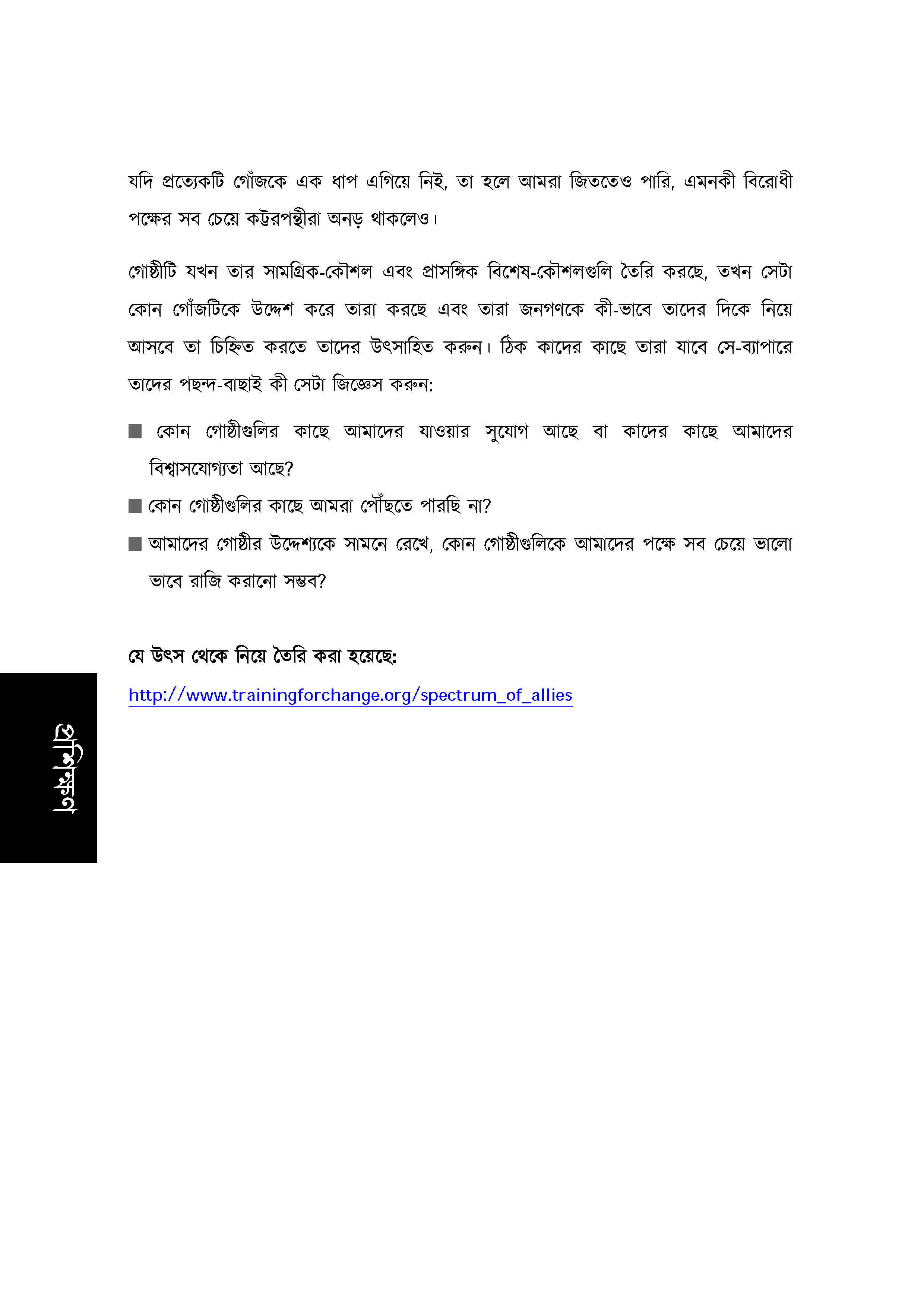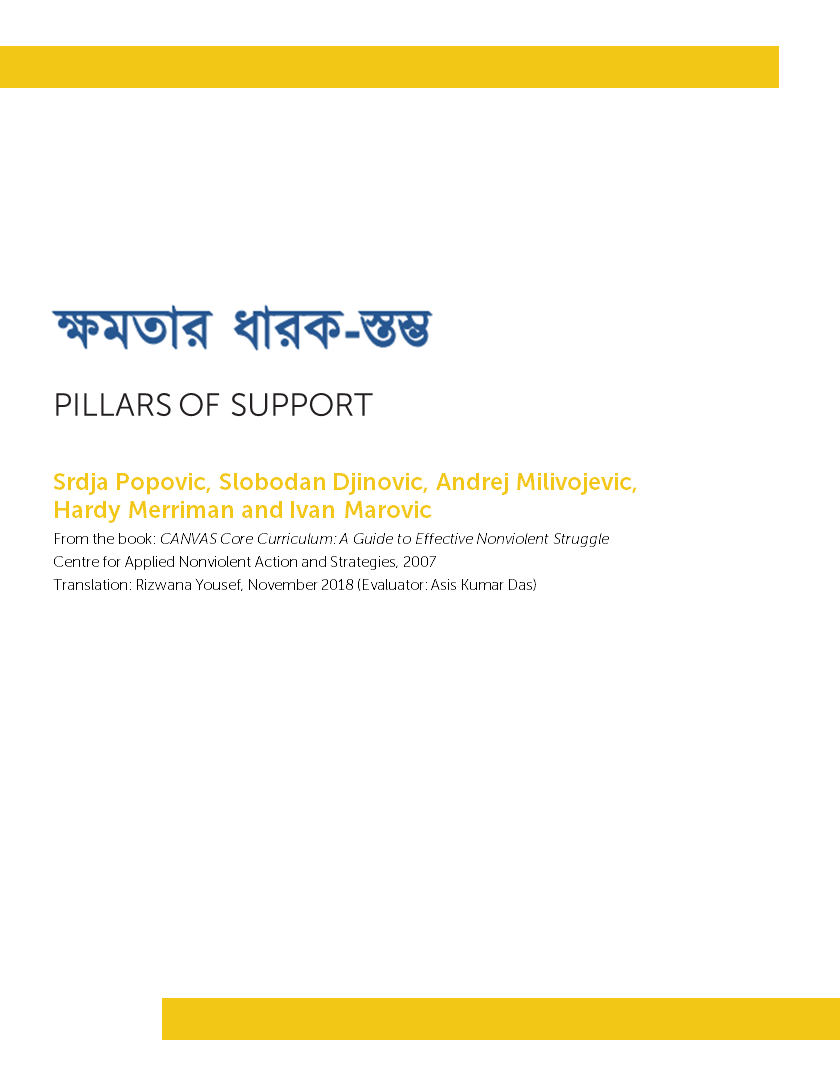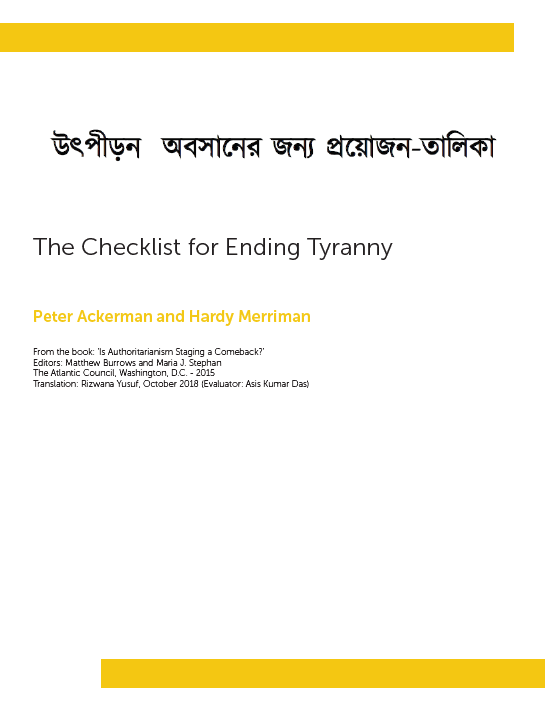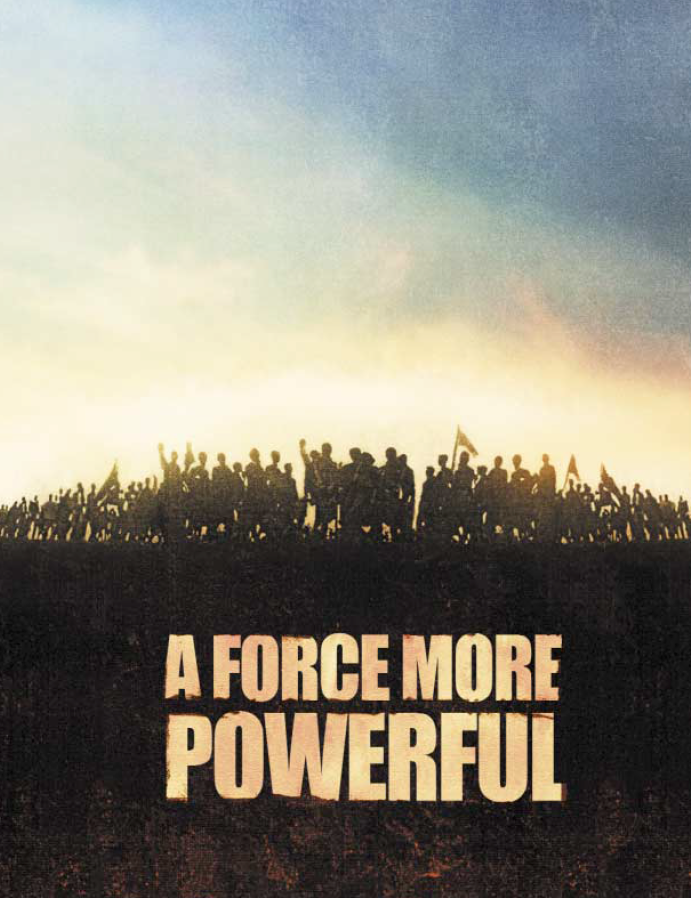Spectrum of Allies (Bangla)
To understand who our allies and opponents are.
To learn that tactics need to be planned in relation to how much they do or don’t attract key allies and move people towards being active allies.
To encourage more optimistic mobilisation efforts through a realisation that it is not necessary to win over the opposition to our point of
view.
To invite people into the fascinating complexity of strategising.
From the book: Handbook for Nonviolent Campaigns Edited by Howard Clark, Javier Gárate, Joanne Sheehan, and Dorie Wilsnack
War Resisters’ International, 2014
War Resisters’ International, 2014
Translation: Rizwana Yousef, November 2018 (Evaluator: Asis Kumar Das)
